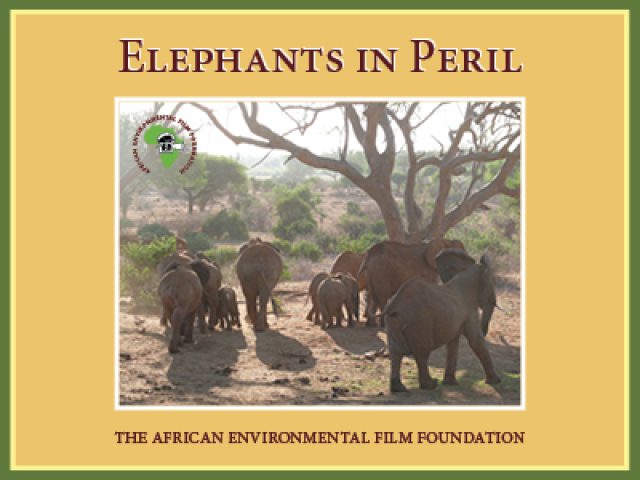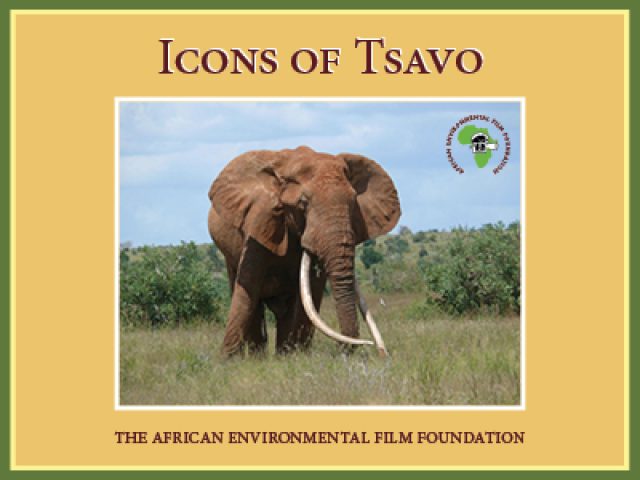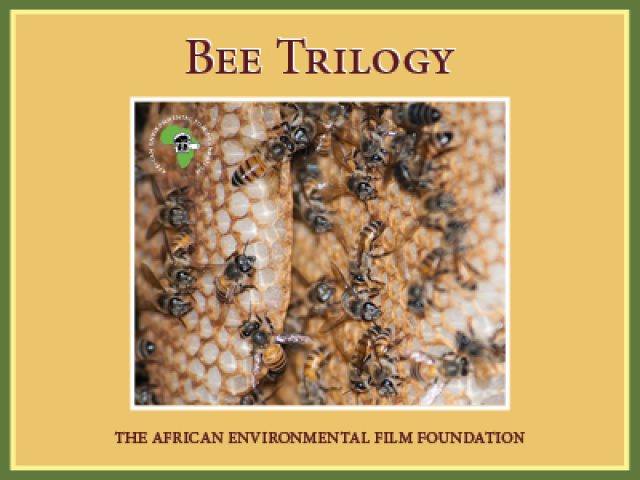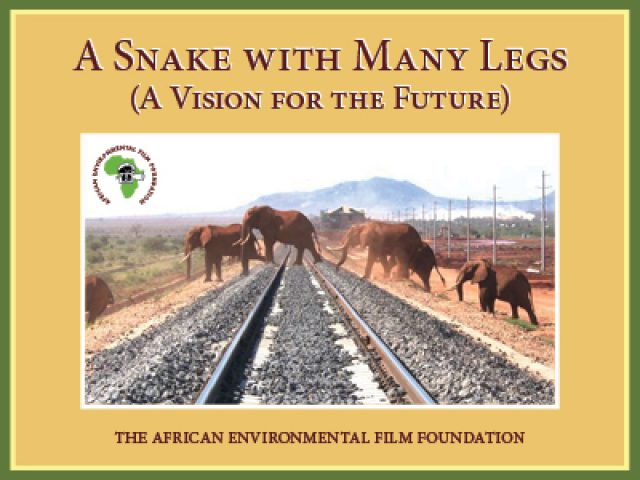This is a series of three half hour films, focusing on the African Honey Bee (apis mellifera scutellata) and the part it plays in Africa’s plant life, including its vital role as a food crop pollinator. This series of films has kindly been made possible thanks to a grant from The Ohrstrom Foundation.
Film One: The African Bee Man

This film shows how a traditional African Bee Man relies on an age-old skill to scale huge baobab trees and by using materials found in the bushland, he is able to reach wild bee nests, situated either in holes or in the open under overhanging branches. This method of honey harvesting would have begun many years ago, when early man first had the idea of reaping the benefits of wild bees.
In time, humans developed the idea of creating beehives so that they could obtain honey in greater quantities and more easily, and honey became a regular source of food.
Unfortunately, with the knowledge we now have today, we now know that the traditional actions of smoking out bees to stop them from stinging the person taking the honey and removing all the honey comb without leaving any for the bees (bees rely on the honey comb for food during the dry season) is in fact destructive to the bee population. As a result, bee populations decline, along with the benefits that bees bring to the natural environment and to mankind.
—
Film Two: The African Honey Bee

This film is a combination of library material and new footage. It shows the astonishing and complex behaviour of the different castes within the framework of the swarm as a whole. Many of the actions of the queen bee and the worker bees during swarming, building the comb, rearing the young, and collecting nectar and pollen are shown in intimate detail, accompanied by a riveting narrative.
—
Film Three: Bees Are Life

This film begins back with early footage from AEFF’s library, and moves on to new footage showing the modern, more efficient way to keep bees and harvest honey without damaging the swarm. In addition to showing people a more lucrative and beneficial way to obtain honey, the film will educate people on the benefits of pollination, how pollination works and how vital this relationship between insects and plants is to people in Africa. By showing examples at a local level, the film will show how the same benefits apply across the world, for nearly all the major plant species of the world, including mankind’s own food crops, rely on bees to pollinate them.
Completed Films

White Gold
Completed
Elephants in Peril
Completed
The Icons of Tsavo
Completed
Bee Trilogy
Completed
Films in Production

A Snake with Many Legs
In production
K2 – Kenya Coast
In production
